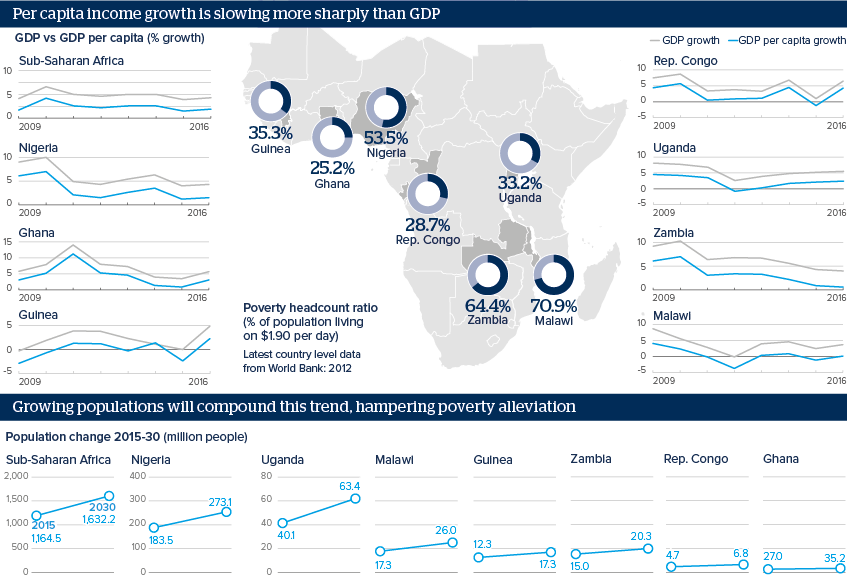Flatlining incomes to slow African poverty alleviation
Economic expansion is insufficient to provide for fast-growing populations

Source: IMF, World Bank, UNDP, UNICEF
Outlook
On October 27, the IMF revised downwards its growth forecast for sub-Saharan Africa (SSA) to 3.7% from 4.5% predicted in April, largely due to low commodity prices. Yet more startling is the slowdown in GDP per capita growth. Average incomes will grow at 1.9% in SSA -- their slowest rate in seven years.
Unless economic output increases are sustained and complemented with greater social spending, these economies will struggle to provide for rapidly growing populations. Average incomes could continue to lag into the 2020s, with negative knock-on effects for poverty alleviation. SSA states' pledges on achieving the UN Sustainable Development Goals on eradicating poverty will ring hollow.
Impacts
- Inefficient taxation systems will impede wealth redistribution, worsening inequality.
- Retrenchments by mining companies will dampen remittance flows in Southern Africa, exacerbating poverty.
- Rising food prices linked to drought will aggravate food crises, especially in very poor countries.
- High poverty levels may discourage governments from reducing fuel and food subsidies, especially around elections.